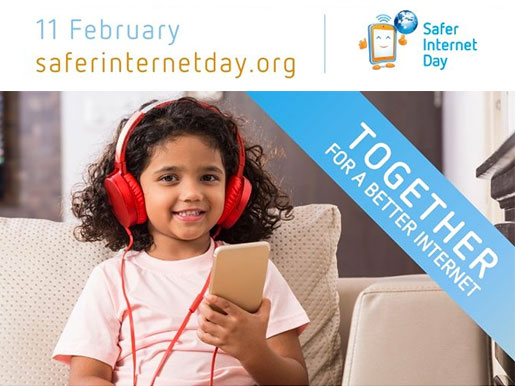Make Every Day a Safer Internet Day on Wi-Fi
By Philip Mustain, Mobolize | CEO and Co-Founder
Today is Safer Internet Day 2020. Organized by the joint Insafe-INHOPE network, along with the support of the European Commission, the goal of the day is for millions of people around the globe to gain awareness of and join forces to work “together for a better internet.”
Much of the focus is to raise awareness of online safety issues – not just for computers but for mobile devices too. It’s a mobile world today. Our computers are in our hands, pockets and purses and we use Wi-Fi all the time as we move around from home to cafés to stores to work and travel. The fact is that Wi-Fi can be more unsecure than the cellular network used in homes or business. So how do we stay safe on Wi-Fi?
There are technology tools to keep us safe, but mostly it’s about being smart about using the internet on Wi-Fi. Here are some suggestions.
Be a smart family: Wi-Fi networks are often open to hackers that steal information so users must be careful. Not only is it how one uses the Wi-Fi network, but let’s start with the basics of posting.
Everyone has the right to have their privacy respected and protected. Lots of moms and dads love to post pictures of their children on the internet, but that immediately makes names and personal information public. All it takes is one person and one hack through an unprotected Wi-Fi connection and there goes privacy – names, addresses and paths to more personal information such as contacts, finances and banking are stolen and could be used for evil means.
In fact, according to a report by Barclays, by 2030, “sharenting” could account for up to 7 million incidents of identity theft and over $800 million in online fraud. For example, posting that cute kid-shot on their birthday can reveal names, ages and dates of births,
home addresses, place of birth, mother’s maiden name, schools, the names of pets, sports teams they support and photographs that reveal hair/eye color and more. This information stays on the internet so when the kids are adults it can be used for fraudulent loans, credit card transactions or online shopping scams.
In particular, be respectful of posting pictures of teens. They may not want pictures posted because it’s embarrassing or an image they don’t want shown. It’s their right to approve a post and parents should ask for permission before posting. Don’t believe it because it takes the fun out of social media and, after all, you’re the parent? Then check out this compelling video.
Other ways to be a smart family – don’t share passwords outside your family. Also, don’t click on any email link even if you know the sender. It may look like it’s from a trusted friend or family member, but it could be a scammer who can steal information. One idea – set up a family code that is used for every email with a link. A special emoji or phrase will identify it as legit.
Parents should also define online boundaries. Identify what to share and with whom and to tell parents if there is something suspicious online. Parents should adjust privacy settings on apps and platforms to ensure that kids are safe.
Be Smart Travelers: Family vacations can be the best, but families are also prime targets for Wi-Fi cybercriminals. Unless all mobile devices have Wi-Fi protection, don’t use the Wi-Fi hotel network, especially if it looks legit but has a twist on the hotel’s name. The same goes for airport Wi-Fi, the Wi-Fi offered in taxis, restaurants or any other free public Wi-Fi. If you don’t have Wi-Fi protection, use the hot spot on your phone instead and never log into financial accounts when on a public network.
Don’t sync your phone to a rental car, even though you’d like to listen to Justin Timberlake and Meek Mill’s new song “Believe” on your song list. Your contact information will be stored in the car where thieves can plant malware to gain access to your contacts. The same is true for charging stations in hotels, airports, cafes, etc. Just stay off them and use your own charger that you trust.
Technology to keep everyone safe on Wi-Fi: There’s technology to keep users safe on Wi-Fi networks. It’s called Virtual Private Networks (VPN) but many have issues. Traditional VPNs encrypt all traffic regardless of its destination which makes users’ membership unrecognizable and thus rejected. The result is that users are locked out of watching Netflix shows, for example. VPNs also use a lot of battery power because they’re always on.
Mobolize’s SmartVPN® fixes these problems because we don’t encrypt already safe and recognized traffic. Users stay safe on Wi-Fi and have access to their streaming video sites and don’t have to worry as much about battery issues. Another advantage is that Mobolize’s new bonding technology helps maintain a good connection that allows phones to switch to the best network connection – Wi-Fi or cellular. The users’ advantage: save data costs and stay connected.
Where can users find Mobolize technology that keeps them protected and connected? Check out our website that lists our partners here.
Have a great Safer Internet Day. We encourage everyone to play your part in making the internet and Wi-Fi better and safer not just today, but forever.





